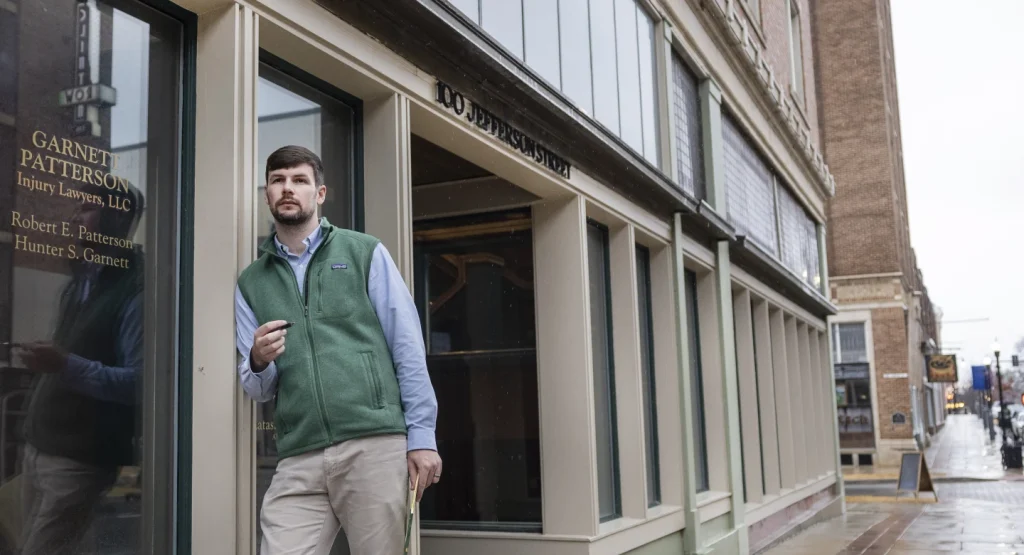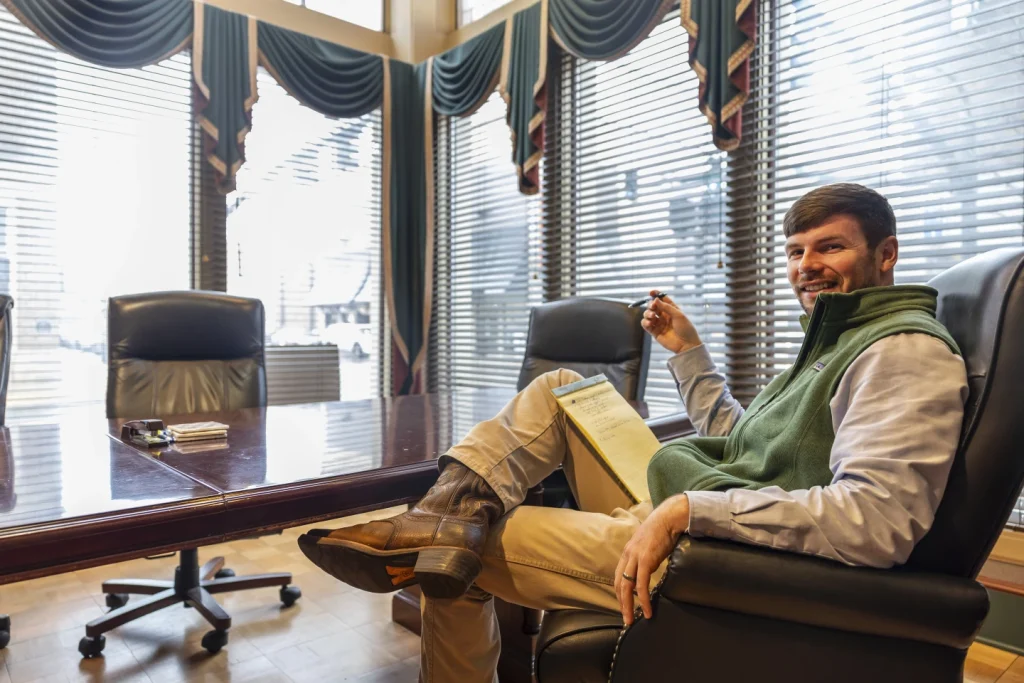The traditional concept of office spaces has been undergoing a significant transformation in recent years, particularly in the wake of the COVID-19 pandemic.
The story of Steve Replin, a seasoned lawyer and alternative lender in Denver, serves as a poignant example of this shift.
After 46 years of maintaining a physical office, Replin has made the decision to relinquish his office space, a move emblematic of the changing dynamics in the professional world.
This decision reflects broader trends in the business landscape, as companies, both large and small, grapple with the evolving preferences of clients and the impact of remote work.
The pandemic has acted as a catalyst for reevaluating the necessity of traditional office spaces. As Replin himself acknowledges, the younger generation’s inclination towards conducting business online or in more casual settings such as coffee shops is indicative of a broader shift in attitudes towards office environments.
The statistics affirm this trend, with approximately 23% of U.S. office space now available, marking a significant increase from the pre-pandemic figure of 16%.
This shift is not confined to large corporations; small business owners are also rethinking their office space requirements.
Small business owners, in particular, are reassessing their needs in light of the changing landscape. Some are finding value in suburban locations, while others are opting to downsize their square footage.
The prospect of a permanent shift to remote work is also gaining traction among entrepreneurs, as they recognize the potential benefits of this arrangement.
Alan Pontius, the national director of the office and industrial division at Marcus & Millichap, underscores the opportunities presented by the current real estate market, emphasizing the potential for newer, better-located spaces at competitive rates.
The experiences of individuals like Hunter Garnett, who established a law firm during the pandemic, further illustrate the impact of these changes.
Garnett’s decision to secure office space close to the courthouse initially seemed prudent. However, the widespread adoption of virtual court appearances has led him to reevaluate the necessity of a central downtown location.
His experience highlights the enduring impact of remote work and the need for businesses to adapt to these new realities.
The evolving nature of office spaces is not merely a consequence of the pandemic; it reflects a broader societal shift towards flexibility and adaptability.
The traditional model of the office, characterized by rigid structures and physical presence, is being reimagined in favor of more dynamic, collaborative, and cost-effective alternatives.
The concept of “work” is no longer confined to a specific physical location; rather, it is increasingly defined by the ability to connect, collaborate, and conduct business in diverse settings.
As we navigate this new terrain, it is essential for businesses to embrace a forward-thinking approach. This entails a willingness to reassess traditional norms and explore innovative solutions that align with the evolving needs of clients, employees, and the broader business ecosystem.
The reimagining of office spaces presents an opportunity for creativity, efficiency, and sustainability, as businesses seek to optimize their operations in a rapidly changing world.
In conclusion, the decision of Steve Replin to relinquish his office space encapsulates a larger narrative of transformation within the professional realm.
The pandemic has accelerated the redefinition of office spaces, prompting businesses to reconsider the necessity of traditional setups and embrace more flexible, adaptive models.
The experiences of small business owners and entrepreneurs underscore the need for agility and responsiveness in the face of evolving client preferences and technological advancements.
As we look towards the future, the evolution of office spaces serves as a testament to the resilience and adaptability of businesses in an ever-changing world.
In reflecting on his business’s growth trajectory, the individual expressed initial expectations of frequent courthouse visits and rapid expansion necessitating larger premises.
However, the realization that remote workers offered a more cost-effective solution resulted in a slower-than-anticipated need for physical space.
Consequently, the pursuit of a more modest 1,200 square feet office in suburban Huntsville, at a reduced rental rate of $1.50 per square foot, aligns with the desire to be closer to clients.
Similarly, Leslie Saul, the proprietor of an esteemed architecture and interior design firm, faced a pivotal decision when confronted with a substantial rent increase at her longstanding central Cambridge location.
The pandemic prompted a reassessment of spatial requirements, leading to the establishment of a new office in Winchester Center on January 1.
This relocation not only offered a more affordable rental agreement due to reduced space and inclusive parking but also facilitated the downsizing of the firm’s library while maintaining a visible and identifiable presence.
Both instances underscore the evolving dynamics of workspace needs in response to economic and operational considerations.

In light of the pandemic’s impact, individuals and businesses have found themselves reevaluating their traditional approaches to work and office space.
The shift towards remote work and the subsequent decrease in full-time in-office presence has prompted a rethinking of the necessity of traditional office spaces.
Annie Scranton, owner of Pace Public Relations, is contemplating the utilization of a co-working space to accommodate her staff, who no longer work in the office full-time.
This adjustment reflects a broader trend in which businesses are embracing more flexible work arrangements and exploring alternatives to traditional office settings.
Some entrepreneurs, like Replin, have even opted to forgo office space entirely, finding that meeting clients in coffee shops or via video chat offers greater flexibility and efficiency.
Similarly, Muffetta Krueger has recognized the potential for remote operations, allowing her to expand her business without the burden of additional physical office space.
This shift in perspective underscores a fundamental reimagining of the role and necessity of traditional office environments in the modern business landscape.
As individuals and businesses continue to adapt to evolving work dynamics, the concept of office space and its significance is undergoing a profound redefinition.
